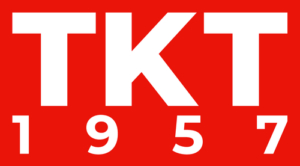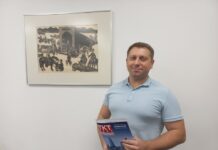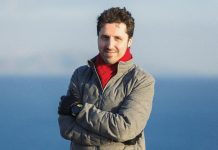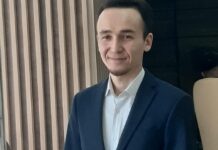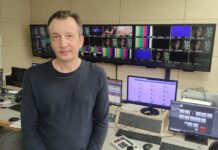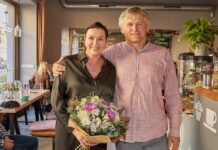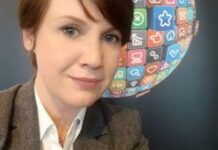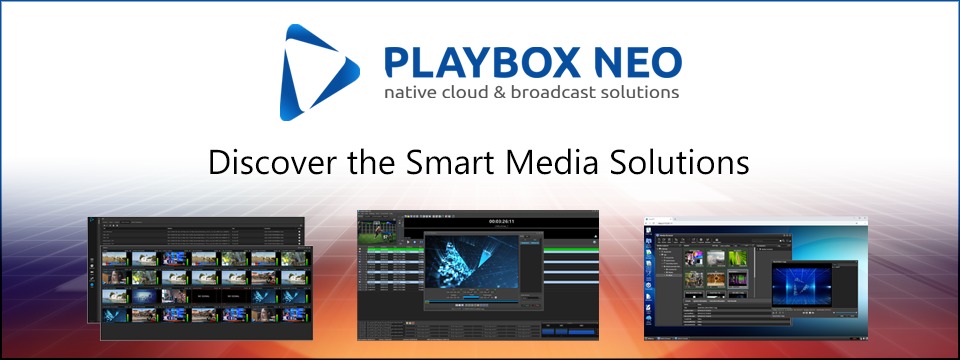Interview with Vice President at Rosco Christian Arroyo.
What effect has COVID had on your business?
COVID-19 has had a big impact on our business. I guess the best way to explain it is that Rosco is a company with a worldwide presence. Our offices are all over the world and our personnel, too. The way our business is split is more or less 50% in television and broadcasting, 40% in live entertainment – theater, concerts, corporate events, trade shows, weddings, any events with people gathering, with a stage or without. And 10% of our business is in architectural lighting projects, which can be museums, hotels, parks, restaurants. My responsibility is in the film, television, and broadcast market.
In February, we were very busy everywhere in the world. My colleagues more involved in the live entertainment part of our business were already warning us that the COVID-19 pandemic happening in Asia was affecting our business. We had already had some trade shows postponed or canceled, some concert tours, and even some weddings. The truth is that at that moment we were so busy, I didn’t know how much of a problem this was starting to be. Then, in March, when all shoots all over the world (mainly in Europe and America) were shut down it was a shock because everything happened within 48 hours. I remember very well that I was in London after having spent some time in New York. In mid-March, I started getting information from our health people about all the shows going dark everywhere. The last email came in from Los Angeles, and that was the moment I realized the situation was very difficult.
The truth is that at that moment we were so busy, I didn’t know how much of a problem this was starting to be.
In April, our revenue figure – our sales from April – were 25% of what we had in the same month the year before. So, all of a sudden, more than 75% of our business was gone. We had to lay off some colleagues, which was hard. Different governments and countries where we operate started coming up with furlough programs, so a lot of our personnel was sent home on these programs. And really, about 80% of our people stopped working, either furloughed or laid off. April and May were very difficult months because there was huge uncertainty. We didn’t know what was going to happen, we were in crisis mode. We have this big boat with water getting inside it, how do we keep it sailing? We had to make really difficult decisions with personnel, as some offices were opening for business, but there was actually very little business
I think that because this pandemic started in Asia and then came to Europe around 2 months later and then moved to the US, the economic recovery is following a similar pattern. The economic situation in Asia, for the most part, is almost back to normal, and I’m hoping that in the next month or so the situation in North America will be better. However, that doesn’t include live entertainment which, as I said, is about 40% of our business, because there is still a lot of concern about getting people together in a theater or in a trade show floor. So that is still going to take some more time to come back.
The architectural projects, for the most part, keep going which is good, very helpful. Some of the broadcast projects we have still went ahead, very few of them were canceled or postponed. The film production was dead for a few months, but now it’s picking up. So, it’s nice and encouraging to see that we’re getting some business back. That allowed us to scale up our operations, so we have more people working many operations onsite: warehouse, production, and customer service. Our colleagues are fully focused on virtual communication with our customers. We don’t visit any customers because people don’t want to be visited, there a lot of risks.
We don’t visit any customers because people don’t want to be visited, there a lot of risks.
Right now, we are in a position where we are confident that we will be able to weather this storm. Though, we still have below half of our usual business, more or less 40% level. We are confident that we will be in a better place in the next couple of months… unless the pandemic stops our economy again. Because in countries like Spain, the UK, even France, there are so many spikes all over, and new lockdowns are being put in place. As long as film production continues to happen, the business will continue. But, if the situation gets as bad as it was in March when the government decided to lock down the economy, then we will be back to where we were. I hope that that won’t happen, but it is certainly not off the table. And that’s where we are right now.
Do you think COVID will affect TV and cinema technologies in the future? How?
In my conversations with some cinematographers who are friends of mine, they’ve already told me that they are doing some shows remotely. It is something that was inconceivable before, that the director of photography is sitting in London working on a feature film in LA, but we are finding ways to do it. It’s all about providing a live feed from the location or the studio to the home of the director of photography, using platforms like Zoom or Team. In the same way that a lot of people are now working from home and finding out that they can do there, something similar is happening in the film market. I don’t know how sustainable it will be, but I know that it’s happening, and it’s possible that it will continue to happen after the pandemic is over with the long-awaited vaccine. I hope that it’ll be available in the next few months.
A personal question about you, how did you grow up? Tell us about yourself, did your family environment affect your choices and current position?
I think it was clear to me that I wanted to focus my future on business from when I was 15 or 16. I remember that I had a dream to work in the stock market and watching the movie Wall Street was impactful for me. Being the son of a doctor, I know my father would have loved for me to become a doctor, but I couldn’t do it. So, I decided to take the business route. When I finished high school, I went to a business school where I got a five-year degree. During the last year, I got a scholarship to go to Copenhagen in Denmark to study in the American Business School, which was very good.
I remember that I had a dream to work in the stock market and watching the movie Wall Street was impactful for me.
After Copenhagen, I came back and tried to get into the stock market, but at the time military service was still mandatory in Spain. Right after I came back with my new degree in business, it was important to do my military service, so I volunteered with the navy weekly. I served for nine months, and when you are in the military you make no money. My salary was nine euros a month because every soldier in the marines has a monthly allowance, but then, when you take out the cost of food, clothing, and accommodation the net total was nine euros. For a 22–23-year-old person with a degree, it was hard not to have any money during university, and then also during military service. When I was about to finish in the military, I had the option to work in the stock market, starting as an intern, but for a year and with no salary. It was a good option, but I found that I needed to have a job.
I applied for multiple jobs, and then Rosco found me through the Chamber of Commerce. I got a job working in the Finance Department of this small company called Rosco, and I thought I would be here for two-three years, learn some things and then someday move to the stock market after making some money. Back then it was a small company in transition because the manager had changed. I started learning about this market – the entertainment market – and I started to find the products and the applications very interesting. I started meeting a good number of customers, and I became really passionate about this market, so I wanted to learn more and more. Everything I learned was always through listening to professionals: directors of photography, lighting designers, gaffers and directors, technical managers of theaters.
Over time, Rosco gave me the opportunity to take on different positions.
Over time, Rosco gave me the opportunity to take on different positions. I worked for Rosco in Spain for 13 years, and then, about nine years ago, Rosco transferred me to London where I’ve now also taken on a different responsibility. In summary, I came to the entertainment industry from the business side, not from the technical side. And today, having a responsibility in sales, I can openly say that I am not technical, but everything I know about the way Rosco products work is based on what I have learned from users telling me how they use them, how they help them. So far so good. 22 years so far and, I hope, many more years to come.
Tell us more about your family – your parents, your life and your childhood.
My family was not a typical Spanish family, because my father was Peruvian and he lived in Argentina for many years, and then in Spain. These were years of Franco, so there were not many foreigners in Spain. He was a big traveler, and a doctor – a cardiologist – and he was my role model. My mother is Spanish, a strong woman, and they built our family together. I’m the oldest son, my brother is five years younger.
My father was always very keen on both his sons studying.
My father was always very keen on both his sons studying. When we were young he was always pushing us to study English. I remember, when I was a kid, I used to complain during the summer, because all my friends would be going to the swimming pool or playing football or whatever, but my brother and I would have to go to English lessons. My father wouldn’t let us not do them. Many years later, both my brother and I have to thank him for that, because both my brother and I got our first jobs because we spoke English, and the other candidates that were considered for the positions didn’t, and it’s been very helpful all my life. So, we grew up in a family with a doctor who was a hardworking person and a great mother who was the boss in the house – a housewife who was looking after her husband and her children. I think that’s a good summary.
Where were you born?
Madrid, Spain.
What was your school like?
The school was good, I went to the same school the whole time because it was a primary, secondary, and high school. After I finished, I went to the business university.
Was it an English or Spanish school?
It was a Spanish school.
What university did you choose to attend?
A university called Universitat Autònoma. The Autonomous University, I guess, is the translation. It’s one of the two big business universities in Spain. It’s a public university.
in my years private universities were not so popular in Spain yet.
Why public university? Cardiologists make good money.
Yeah, but look, I had good grades at school, and back then the Autonomous University was one of the best ones for business, and in my years private universities were not so popular in Spain yet. Today, everything has changed and now there are a lot of private universities. But back then, it was not necessary, and I was very happy to go where I did. I got the opportunity to study abroad as well, so I was very happy with my choice. My years in the university were some of the best in my life, I have many good memories.
We also want to know about your life, do you have a family?
Yes, I have a wife and two children. My daughter is 15 years old, and my son is 12. My wife and I have been together for a long time – next December it will be 25 years since we started dating. So, we have been together for a long time, we went through a lot together.
What does your wife do?
She’s got a degree in sociology. She always worked in Madrid, but when we moved to London nearly nine years ago, we decided that it would be better for her to stay home and help our children settle because they were very young – when we came, they were six and three years old. So, she stayed at home, she became a stay-home mom, and it’s still that way because, excluding the last six months, I’ve always traveled very often. For 20 years of my life, I’ve traveled on average for two weeks per month. So, living in London and traveling as often as I did, we thought that it would be best for her to stay home and make sure that children were properly looked after, so that’s what she’s doing. Now, when the children are older, maybe in the next two or three years, she will start working again. She’s been considering some options. I know she would like to go back, but right now she is making sure that our two children do what they have to do for their studies and become good people. Raising children is a full-time job, so she’s quite busy.
The weather in London is very hard. What is your family thinking about coming back to Spain?
All of our family is in Spain: my mother, my brother, my brother’s family, my sister-in-law – everybody is there, so it’s hard, especially now, with the pandemic. We wanted to go in the summer, but we couldn’t see them. We then wanted to go in October, and that’s not going to happen now either because Spain is a difficult place with the pandemic. There was always some hope that we would be able to go back to Spain, but for now, the education system in the UK is very good, so we are very happy with the education our children are getting at a state school. For sure, we will be here until our children finish school, then afterward – I don’t know.
I worry about how it is going to affect the country’s economy, especially considering that because of the pandemic the economy is weak.
The UK is also going through a difficult moment with Brexit, which happened on February 1. I worry about how it is going to affect the country’s economy, especially considering that because of the pandemic the economy is weak. Then – Brexit. And there is no agreement between the UK and the European Union, so I don’t know what will happen to this country. So, I’m always open to all options, but if everything is going reasonably OK, we’d chose to stay here for some more years.
Can you tell us about new products, new launches?
I don’t know if you are familiar with our Mixbook, so I’ll explain it. Here, in Rosco, we have three categories of products. We have what we call ‘core products’ or traditional products which are the Rosco gels, gobos, paints, flooring. Then, we have the second category which is all LED fixtures for the entertainment industry. Then, we have the third category, which is all the printed backings we call SoftDrop that we do for the film market.
We have been focusing a lot of resources on expanding our LED fixtures for the last ten years, and it was an important moment in our recent history when in September 2017 we acquired a French company called DMG Lumiere. They have a great team of very talented young and hungry people and a very nice product line. We knew that their product line was lacking color because they only buy color. So, we found that by joining forces we would be able to come out with a product line that would make a difference in the film, television, and broadcast market. With it, we later managed to come out with a mixed technology, and it’s been revolutionary from the point of view of the quality of light output of our products, both in color and in white.
we found that by joining forces we would be able to come out with a product line that would make a difference in the film, television, and broadcast market.
As far as the development, we realized that we are now a color expert company, the lighting professional in the world of entertainment. We issued some of these types of swatch books to choose the colors, they would look at a color and think, “Is this a color I want?” With the huge growth of LED fixtures, we’ve realized that customers wouldn’t be able to choose a color when working from home unless they have the fixture next to them. If a lighting designer or a cinematographer is working from home and preparing some scenes on a Sunday night and they’re going to be shooting that week and want to check how color works on a piece of a costume or on a skin tone or object – they can’t. So, we decided to make a detailed swatch book which we brought to the market, we call it Mixbook, which is dealt with the same LED that we have in our mixed technology. It’s a pocket-size device. I’m using it right now to light myself, so I’m going to show it to you on the camera – this is the Mixbook. As you can see, it makes a big difference when lighting me. People have found more uses for this product now, just like me – I’m using it as a little torch or flashlight to illuminate myself.
We sold 5000 units in three months, and then the pandemic hit.
The latest development we have is this product, which has been the most successful Rosco product of cinema in 22 years. We sold 5000 units in three months, and then the pandemic hit. It is designed in France but manufactured in China. The supply chain got disrupted because of the pandemic, so it took some time until we could make a new batch, which has just arrived. We now have brand-new packaging for the Mixbook, this is a new box written friendly with a barcode, and a new sale will get a pouch with the Mixbook inside and a USB charging cable. We’ve improved the product based on the feedback we have received from our customers. So, the Mix users can play with our colors and whites on their desk and know the colors and whites they would get out of the Mix fixtures when we are working with them in the shows. That has been a huge improvement for Rosco and a big leap forward for this technology, and there is still more to come.
Could you disclose some information about new launches?
In the Mix technology, we have three fixtures right now, including three sizes. And one of the things we’ve learned with this was that people really like a small unit that is battery operated can provide high-quality light output that our Mix fixtures do. So, we’ve been exploring the possibilities of having something in between – super small size like the Mixbook and the next size of our product MiniMix. We’re going to see something coming out soon.
Are you a fan of Real or Atletico?
Real Madrid.
And your children?
Same.
Same in London?
Yeah, they have no choice; we are a Real Madrid family.
Not Arsenal, not Chelsea?
Our favorite team in England is Liverpool. My daughter doesn’t like football, unfortunately. My son and I are big Real Madrid fans, and if Real Madrid is not playing English football, we’re watching and we want Liverpool to win.
